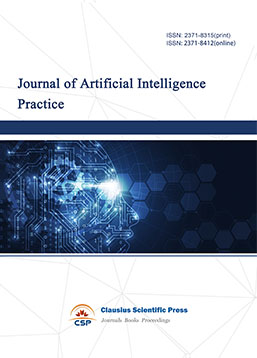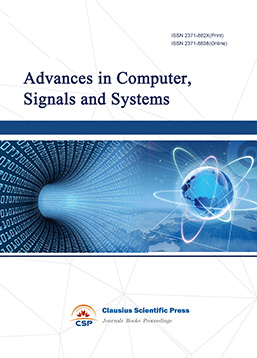A Survey of Research on Deep Learning Entity Relationship Extraction
DOI: 10.23977/nlpsr.2019.11001 | Downloads: 61 | Views: 5994
Author(s)
Wang Peng 1
Affiliation(s)
1 School of Economics and Management, Dalian University, No.10, Xuefu Avenue, Economic & Technical Development Zone, Dalian, Liaoning, The People's Republic of China(PRC)
Corresponding Author
Wang PengABSTRACT
Entity relationship extraction is the core task and important link in the fields of information extraction, natural language understanding, information retrieval, etc. It can extract the semantic relationship between entity pairs from text. In recent years, the application of deep learning in joint learning and remote supervision The relationship extraction task has obtained rich research results. At present, the deep learning-based entity relationship extraction technology has gradually surpassed the traditional feature-based and kernel-based methods in feature extraction depth and model accuracy. And the two areas of remote supervision, the system summarizes the research progress of Chinese and foreign scholars' deep relationship-based entity relationship extraction in recent years, and discusses and prospects the future research directions.
KEYWORDS
Entity relationship extraction, Deep learning, Joint learning, Remote supervision, Generating confrontation networkCITE THIS PAPER
Wang Peng, A Survey of Research on Deep Learning Entity Relationship Extraction. Natural Language Processing and Speech Recognition (2019) 1: 1-5. DOI: http://dx.doi.org/10.23977/nlpsr.2019.11001.
REFERENCES
[1] Golshan PN,. (1995) A study of recent contributions on information extraction, New Technology of Library and Information Service ,8, 18−23
[2] Gan LX. (2016) Chinese entity relationship extraction based on syntactic and semantic features: IEEE Press, 8, 69−73.
[3] Ratnaweera A. (2004) Self-organizing hierarchical particle swarm optimizer with time-varying acceleration
[4] coefficients. IEEE Transactions on Evolutionary Computation, 6, 712-731.
| Downloads: | 61 |
|---|---|
| Visits: | 5994 |
Sponsors, Associates, and Links
-
Power Systems Computation

-
Internet of Things (IoT) and Engineering Applications

-
Computing, Performance and Communication Systems

-
Journal of Artificial Intelligence Practice

-
Advances in Computer, Signals and Systems

-
Journal of Network Computing and Applications

-
Journal of Web Systems and Applications

-
Journal of Electrotechnology, Electrical Engineering and Management

-
Journal of Wireless Sensors and Sensor Networks

-
Journal of Image Processing Theory and Applications

-
Mobile Computing and Networking

-
Vehicle Power and Propulsion

-
Frontiers in Computer Vision and Pattern Recognition

-
Knowledge Discovery and Data Mining Letters

-
Big Data Analysis and Cloud Computing

-
Electrical Insulation and Dielectrics

-
Crypto and Information Security

-
Journal of Neural Information Processing

-
Collaborative and Social Computing

-
International Journal of Network and Communication Technology

-
File and Storage Technologies

-
Frontiers in Genetic and Evolutionary Computation

-
Optical Network Design and Modeling

-
Journal of Virtual Reality and Artificial Intelligence

-
Journal of High-Voltage

-
Programming Languages and Operating Systems

-
Visual Communications and Image Processing

-
Journal of Systems Analysis and Integration

-
Knowledge Representation and Automated Reasoning

-
Review of Information Display Techniques

-
Data and Knowledge Engineering

-
Journal of Database Systems

-
Journal of Cluster and Grid Computing

-
Cloud and Service-Oriented Computing

-
Journal of Networking, Architecture and Storage

-
Journal of Software Engineering and Metrics

-
Visualization Techniques

-
Journal of Parallel and Distributed Processing

-
Journal of Modeling, Analysis and Simulation

-
Journal of Privacy, Trust and Security

-
Journal of Cognitive Informatics and Cognitive Computing

-
Lecture Notes on Wireless Networks and Communications

-
International Journal of Computer and Communications Security

-
Journal of Multimedia Techniques

-
Automation and Machine Learning

-
Computational Linguistics Letters

-
Journal of Computer Architecture and Design

-
Journal of Ubiquitous and Future Networks


 Download as PDF
Download as PDF